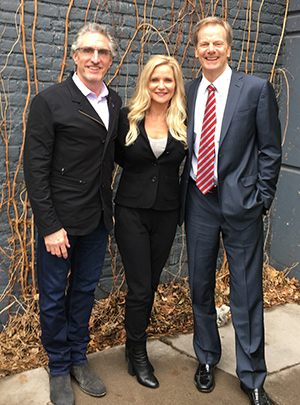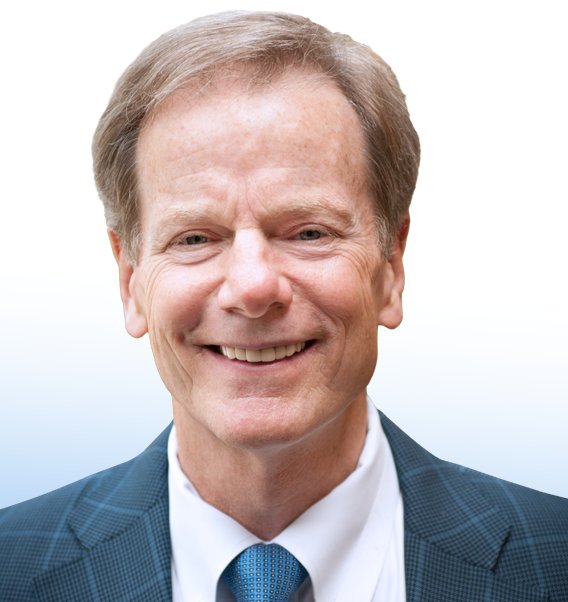Addiction Recovery Advocacy
Spreading the Word

We are all advocates at the Hazelden Betty Ford Foundation—every day, in our own way, supporting a mission that travels far beyond our own purview.
From treating people for substance use disorders to teaching students in our graduate school and developing curriculum for other professionals and communities—and from engaging alums to keeping our Electronic Health Record up and running, our grass cut and the windows clean—our focus is always on the tasks and projects right in front of us. And so it can be difficult to gauge or appreciate the depth and breadth of how our collective efforts impact the lives of people in communities everywhere. The same is true for the growing army of advocates spreading hope in the trenches throughout America.
As a member of the Hazelden Betty Ford Institute for Recovery Advocacy, I spend a lot of my time representing our foundation throughout the country. Thus, my platform allows me to see and appreciate the far-reaching, yet intimate impact, of our mission. Everywhere I go people, policymakers, and the news media look to us for guidance, in their personal lives, in public policy and in the gathering and dissemination of accurate information about addiction, treatment and recovery.
I was fortunate to get a unique dose of Hazelden Betty Ford's extraordinary impact around the nation in the short span of 11 days this month and was reminded of the important role that all recovery advocates play in spreading the promise and possibility of recovery. And so I share it in this forum to affirm to all of my colleagues—and to all of our peers—that what we do makes a difference day-after-day-after day, no matter where you are in the continuum of service to others.
For me, it started on March 1 in Myrtle Beach, SC. I went there to participate in a community forum on youth recovery sponsored by Horry-Georgetown Technical College. For several years now, the college has convened an impressive streak of all-day events highlighting addiction and recovery issues. In the audience were many policymakers, including Mary Jeffcoat, a member of the city council. Among other things, Mary heard my "call to action" that is a cornerstone of our Institute for Recovery Advocacy. And afterward, she sent me this email:
"Thank you for these realistic action steps. I have a background in strategic planning and I get so frustrated when I attend inspirational meetings and everyone leaves with no commitment or next steps. So, your approach speaks to me loud and clear. I plan to ask our City Council if we can devote 10 minutes of every public, televised meeting for educational time around this horrible problem of addiction in our community, and I will use Hazelden Betty Ford's action steps in one of these presentations."
That same night, I gave a 90-minute speech at the college's second campus focused mainly on my story of addiction and redemption and the impact recovery has had in my journey, professionally and personally. Several hundred people were there. Remarkably, none were Hazelden Betty Ford alums, which is not usually the case in my public presentations. Still, there were many whose lives have been influenced by our work.
Jean and Rod Carlisle retired to the area five years ago after decades in Ohio. "We start each day with your little Twenty-Four Hours a Day book of meditations and together we're working on our ‘stuff' in Fred's Drop the Rock," said Jean. Fred is Fred Holmquist—author, Big Book guru and treasured longtime employee of our organization. Jean's husband then introduced me to a local judge who is using Hazelden Publishing's corrections curriculum as part of the training for staff in Horry County's drug court. And a high school teacher told me Olweus, our bullying prevention program, is a staple of support for her colleagues; they only wish they had more funding to expand its reach.
The next morning, when I left Myrtle Beach, I had no doubt that Hazelden Betty Ford's mission has made a tangible difference in a small corner of the Palmetto State.
Three days later, on March 6, I sat across the table at a restaurant in St. Paul, Minn., with the new governor of North Dakota and his wife, the new First Lady. I had met Doug Burgum and Kathryn Helgaas Burgum last fall when I spoke on behalf of a local treatment provider in Fargo, ND. They came, stayed for my entire presentation and lingered afterward until nearly everyone else was gone, and then we talked even more. Not just because he was eager to show support among the voters for addiction and recovery issues. But because Kathryn is in long-term recovery, as she revealed publicly for the first time after her husband was elected.
"I heard loud and clear your call for people to stand up and speak out, and that's what I decided to do," said Kathryn, whose "coming out" story appeared on the front page of the Bismarck Tribune in January. "Because of my own experiences and Hazelden Betty Ford's push, I've been inspired to make this my primary advocacy issue as First Lady."
Indeed, she has. The impetus for our lunch was to discuss the elements of a first-ever two-day public conference on addiction and recovery in North Dakota to be hosted by the First Lady in Bismarck in September. She and her husband will convene treatment providers, people in recovery, health experts, law enforcement and the state's American Indian tribes to discuss ways to help people overcome substance use problems. "I am looking to Hazelden Betty Ford to bring its expertise to the table because you are the leaders; you've been doing this for a long, long time," said the First Lady.
The next night, in Minneapolis, I spoke to an intimate gathering of the local chapter of the League of Women Voters. It is part of the league's "Civic Buzz" speaker series each year, and I opened my talk reminding them that while I have great respect for civic engagement, "nowadays I do it without the buzz." I got a few laughs, and then shared my story and fielded audience questions on everything from parity in insurance coverage to sober housing in city neighborhoods to the legalization of marijuana and the pros and cons of so-called "wet houses." The league also expressed interest in supporting Hazelden Betty Ford's policy issues at the Minnesota Legislature.
Finally, three days after that talk, I gave the opening keynote at a statewide conference hosted by Utah Valley University in Provo, UT. What made my appearance especially important was that our Graduate School of Addiction Studies had a booth in the hall staffed by Dr. Dan Frigo and Dr. Zach Hansen. "If you have any hard questions please ask them; they're the smart ones," I told the audience, and I meant it. Nothing makes me prouder of our mission than when I can highlight my amazing colleagues. Few in the audience of 400 even knew we have a graduate school. They do now.
Invariably, after I've been on the road carrying the message of our mission, I receive a clutch of emails, phone calls and Facebook messages from people who need help. And so after South Carolina, downtown Minneapolis and Utah, I am grateful yet again. From coast-to-coast and whistle-stops in-between, Hazelden Betty Ford is everywhere—just like addiction and recovery—making a difference and changing the terms of the debate for the sake of those who still suffer. Onward—with my colleagues and others of a like mind throughout the nation—we go, together.

